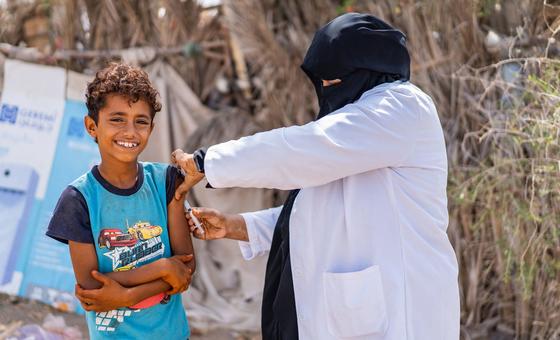The omicron variant of Covid-19 may be less likely to land patients in the hospital than the delta strain, according to a trio of studies of preliminary data.
Researchers in Scotland suggest omicron is associated with a two-thirds reduction in the risk of hospitalization when compared with the earlier variant, though omicron was 10 times more likely than delta to infect people who’d already had Covid.
An Imperial College London team working with a larger set of data from England found that people with omicron were 15 percent to 20 percent less likely to visit the hospital and 40 percent to 45 percent less likely to require an overnight stay.
For more coronavirus news, visit our dedicated page.
The fresh data add to earlier findings Wednesday showing that South Africans contracting Covid-19 are 80 percent less likely to be hospitalized if they catch the new variant, compared with other strains. Omicron infections are also associated with a 70 percent lower risk of severe disease than delta, the study by the National Institute for Communicable Diseases showed.
Although preliminary, the body of research could provide reassurance that omicron may be substantially less likely to result in severe outcomes than delta, at least in places where large numbers of people already have some immunity.
Record cases
Still, the researchers said the highly contagious new strain could weigh on health-care systems as infections soar worldwide. Daily Covid cases in the UK surged above 100,000 Wednesday, the country’s highest single-day tally yet.
“It’s important that we don’t get ahead of ourselves, said Jim McMenamin, national Covid-19 incident director for Public Health Scotland, which conducted the Scottish study with the University of Edinburgh and the University of Strathclyde. “A smaller proportion of a greater number of cases requiring treatment might still mean a substantial number of people that may experience severe Covid.
Anthony Fauci, who serves as the top medical adviser to US President Joe Biden, echoed those comments. While the Scotland study “appears to validate and verify the data from South Africa, he warned that US demographics may lead to different outcomes, and that the total caseload might eliminate any benefits from lower severity.
“Even if you have a diminution in severity, if you have a much larger number of individual cases, the fact that you have so many more cases might actually obviate the effect of it being less severe, Fauci said at a briefing.
Booster doses offer greater protection against delta, and a third shot also offers substantial additional protection against the risk of symptomatic infection for omicron, the Scottish team found.
Public health leaders have cautioned that other factors, such as higher numbers of people who are vaccinated or have previously had Covid, may also complicate any comparison with previous points in the pandemic. The Scottish study also included very few people over 60.
Two doses
“When we measure severity of omicron, we are measuring it as South Africa did, in a very immune population, said Neil Ferguson, a professor at Imperial, who helped lead the English study. After two doses of the Pfizer Inc.-BioNTech SE vaccine, the risk of hospitalization from omicron is probably about the same as the risk from delta, he said — perhaps reflecting the fact that the new variant, though potentially somewhat less severe, is better at eluding the vaccine in people who haven’t had a booster.
The English and Scottish studies had different follow-up times, meaning that the results may change as people’s illnesses progress, said Penny Ward, a visiting professor in pharmaceutical medicine at King’s College London. “It remains important for all of us to take reasonable care, test, test, test and get our boosters as soon as possible.
For the latest headlines, follow our Google News channel online or via the app.
Read more:
Omicron multiplies 70 times faster than delta in human airways: Study
Israeli study finds Pfizer COVID-19 booster protects against Omicron
South Africa study points to reduced risk of severe illness from omicron

 World2 years ago
World2 years ago
 World2 years ago
World2 years ago
 Entertainment7 years ago
Entertainment7 years ago
 World7 years ago
World7 years ago
 Entertainment7 years ago
Entertainment7 years ago






